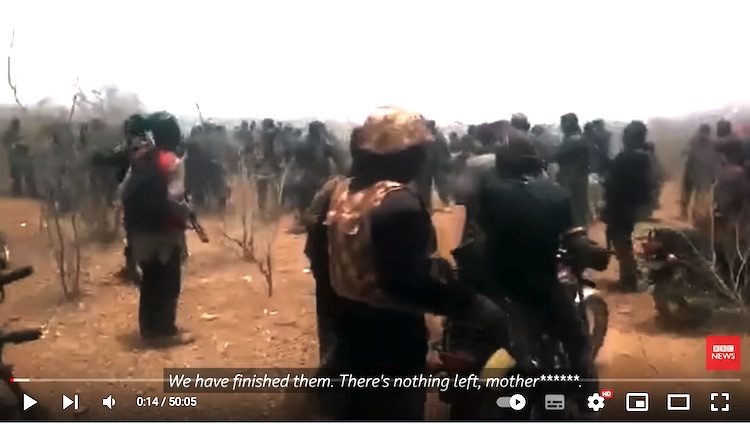By Lisa Vives, Global Information Network
NEW YORK (IDN) — In a deeply disturbing new documentary, Nigerian journalist Yusuf Anka presents a devastating portrait of his country’s worst security crisis. In the north-western state of Zamfara, heavily armed bandit gangs raid villages, attack drivers, abduct children and kill anyone who resists.
As seen through this hour-long video, we hear the voices of Fulani-dominated bandits, as they are popularly called in Nigeria, and Hausa-dominated vigilantes, including the men who abducted almost 300 secondary schoolgirls in February 2021.
In the voices of both victims and perpetrators, the film lays bare the full horror of the violence that has taken hold across the northwest.
It makes clear that the Nigerian state is failing to provide basic security to many of its citizens, reveals just how lucrative the kidnap-for-ransom business has become, and warns the country of the deepening crisis between Hausa and Fulani.
At great personal risk, Anka reaches out to the survivors of last year’s high school kidnapping from the government-run school in Jangebe who, despite the trauma still visible in their young faces, tell how they urgently want to return to their studies.
The bandits behind the abduction have never been caught and have never previously spoken to the media, but Anka and a BBC team track down one of the men who led the attack on the school.
He claims on camera that the bandits were paid a ransom of 60 million naira (just under US$150,000) from the Nigerian government for the release of the girls. “What did you do with the money?” asks Anka. The reply: “We bought more rifles.”
While the government of Zamfara State has always denied that any ransom was paid to the bandits, AK-47s and other high-capacity rifles could be seen in the film throughout the bandit camps.
We also see the chaotic release of the girls back to their families in early March, when the families were being forced to listen to long speeches by local politicos until they got up demanding to take their children home before nightfall when new dangers abound.
In an interview at the camp of Ado Aleru, a notorious Fulani gang leader, one of his associates in frustration names the grievances that are driving many young Fulani men to join bandit gangs. The Fulani people have always been cattle herders, the man reminds us, but cattle herding has become increasingly difficult as traditional grazing routes have been closed off and land and water have become scarce.
Fulani are systematically excluded from government jobs and other economic opportunities, and that the Nigerian air force attacks innocent Fulani herders and kills their cattle. “How have the Fulani become so worthless in Nigeria?” he asks.
Meanwhile, Hausa farming communities have formed similar vigilante groups to defend their fields and families. After a recent massacre, one shouted: “If allowed, we will kill every Fulani man, even in the town because they killed our mothers, our fathers, our children, and dumped their bodies here.”
“The Bandit Warlords of Zamfara” offers no simple explanation for the crisis that is destroying lives across north-western Nigeria, writes Daniel Adamson, senior news editor of BBC Eye Investigations.
“But it does reveal, with painful clarity, the human cost of the violence. There are mothers here who have seen their children slaughtered in front of their eyes, families who have been displaced from their homes, schoolchildren who are still traumatized by the nightmare of abduction and captivity.”
“With this film, available on YouTube, Anka and BBC Africa Eye have made an important contribution towards that understanding.” [IDN-InDepthNews – 10 August 2022]
Photo: Screenshot of “The Bandit Warlords of Zamfara”. Source: BBC Eye Investigations.
IDN is the flagship agency of the Non-profit International Press Syndicate.
This article is published under the Creative Commons Attribution 4.0 International licence. You are free to share, remix, tweak and build upon it non-commercially. Please give due credit.

